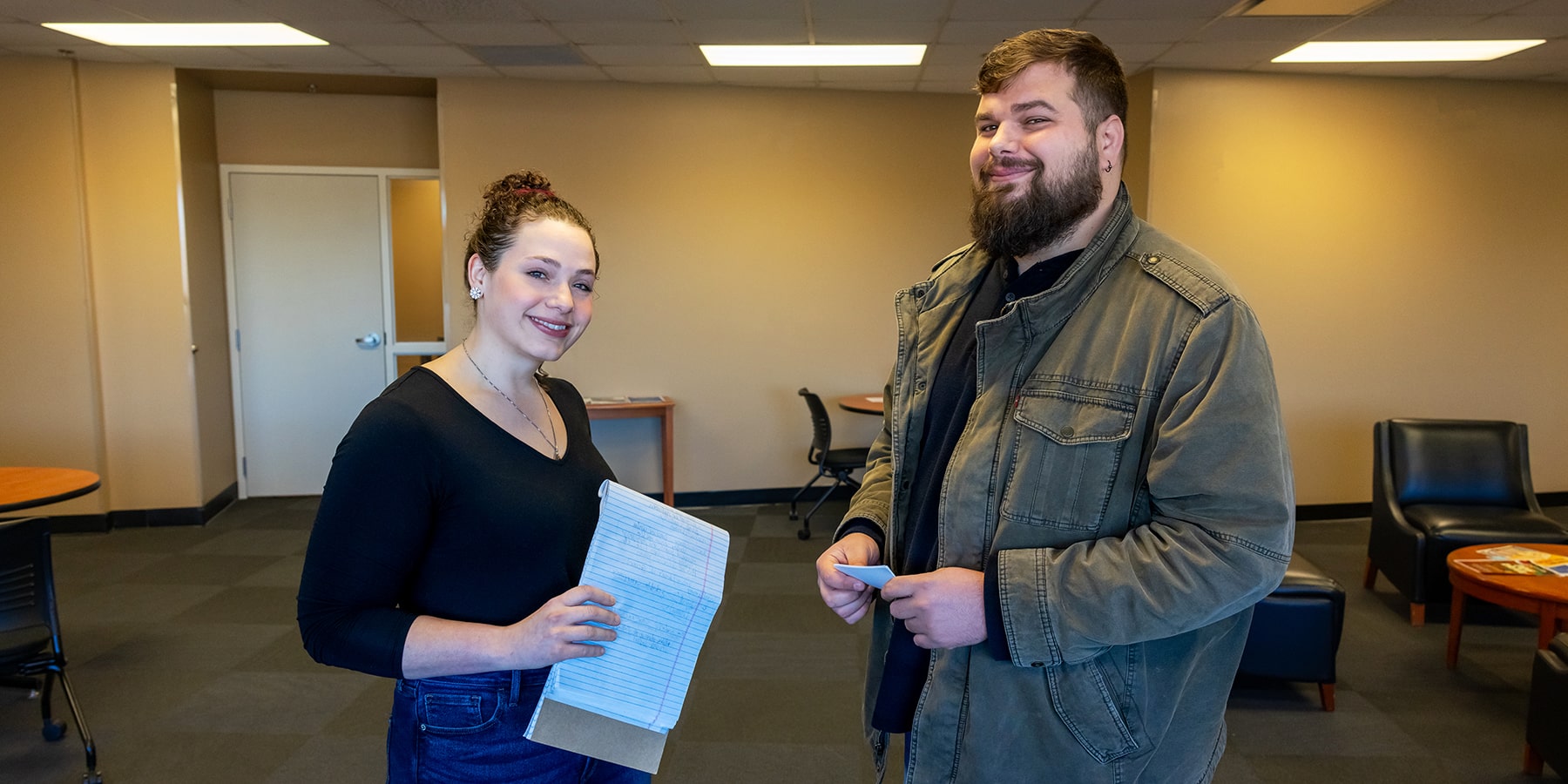In Barrie Talbott’s Composition II course, she has her Ozarks Technical Community College students complete a research project and deliver an in-class presentation every semester.
“I want my students to develop problem-solving and critical thinking skills,” Barrie said. “We also work on professionalism so they are prepared for any career or advanced academic pursuits.”
Typically, Barrie’s students conduct surveys on classroom and workplace challenges, and the data gathering is manageable. However, two of Barrie’s nontraditional students surveyed people external to OTC. They asked the question – Is providing housing enough to solve homelessness?
Missy Loeffler, 27, and Robert Nearhood, 32, dove headfirst into the project. First, they conducted a literature review to read the existing studies and research published on their subject.
“We were surprised at how little research there was on this topic,” Missy said. “There were a lot of studies on how providing housing helped people, but not much follow-up once people became sheltered.”
Robert developed a survey instrument and distributed it to the residents of Eden Village 2, a tiny home community for unhoused people with disabilities. Receiving completed surveys required persistence.
“It took me a long time talking to the residents to gain their trust and get back completed surveys,” Robert said. “For a few people, I just interviewed them and filled it out for them.”
From their research, Missy and Robert determined that providing housing is not enough to solve homelessness.
“Eden Village is a great program, and it solves a major issue, but formerly unhoused people have so much trauma that housing can’t fix,” Robert said. “Homelessness is also a psychological and health problem.”
“Homelessness is a wicked problem,” Missy said. “Perspective is everything. The more you learn, the more you can help.”
Neither Missy nor Robert could attend college right after high school, but the life experience they gained helped give them the confidence to tackle a weighty topic like homelessness.
“I don’t think I could have taken on this project without my experiences,” Robert said. “I’m more empathetic and open-minded to people’s struggles.”
Both students are wrapping up their second semesters at OTC. Once they earn their associate degrees, they plan to attend four-year institutions. A talented artist, Missy has not yet settled on her career path. Robert hopes to eventually earn a graduate degree in psychology and work in child advocacy.
As for their academic pursuits in Composition II, their instructor was impressed.
“I might steer students away from a project like that based on their experience,” Barrie said. “But Robert and Missy came to the table with skills where I felt confident they could take on this research challenge without overwhelming them.”

